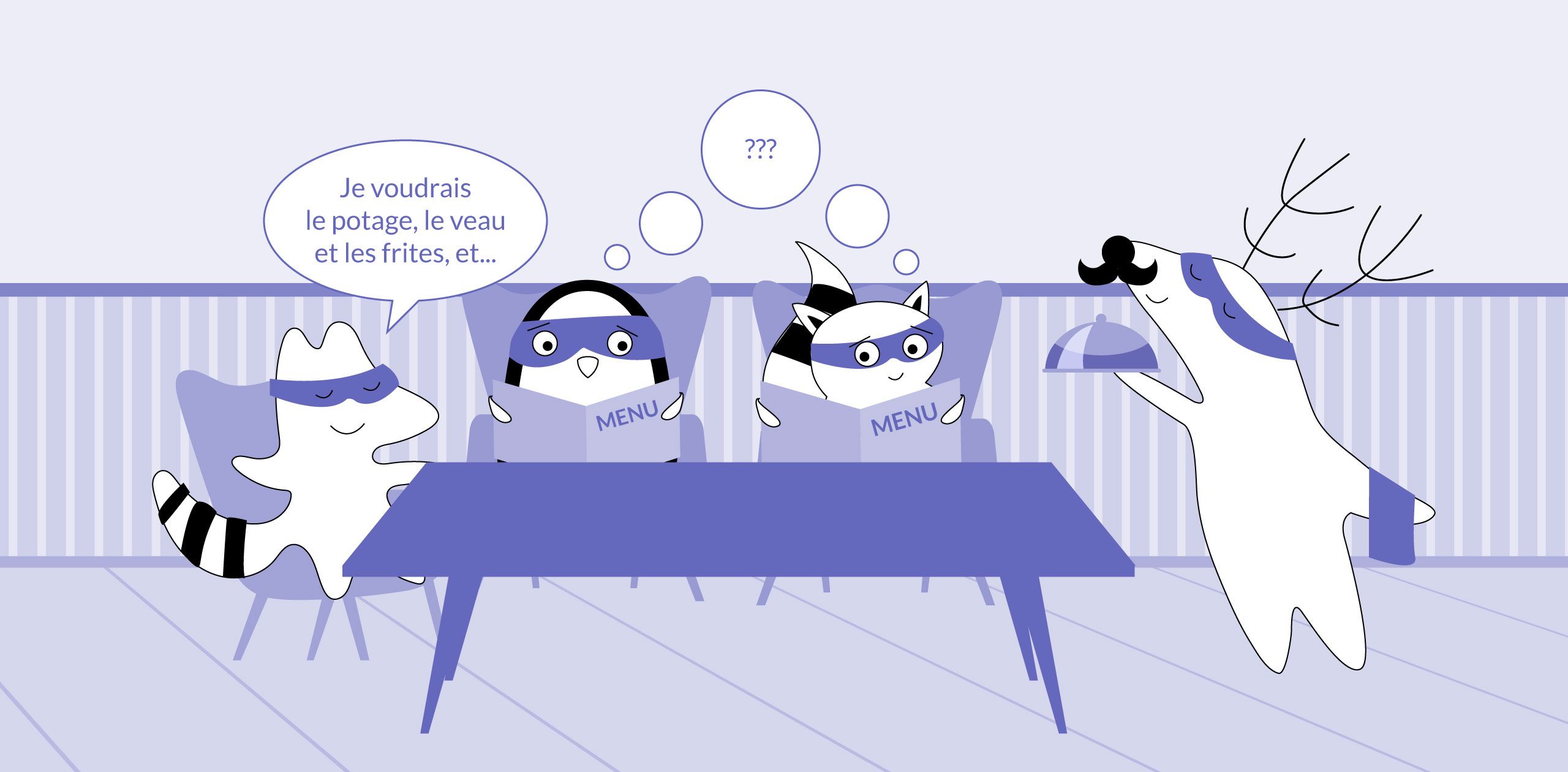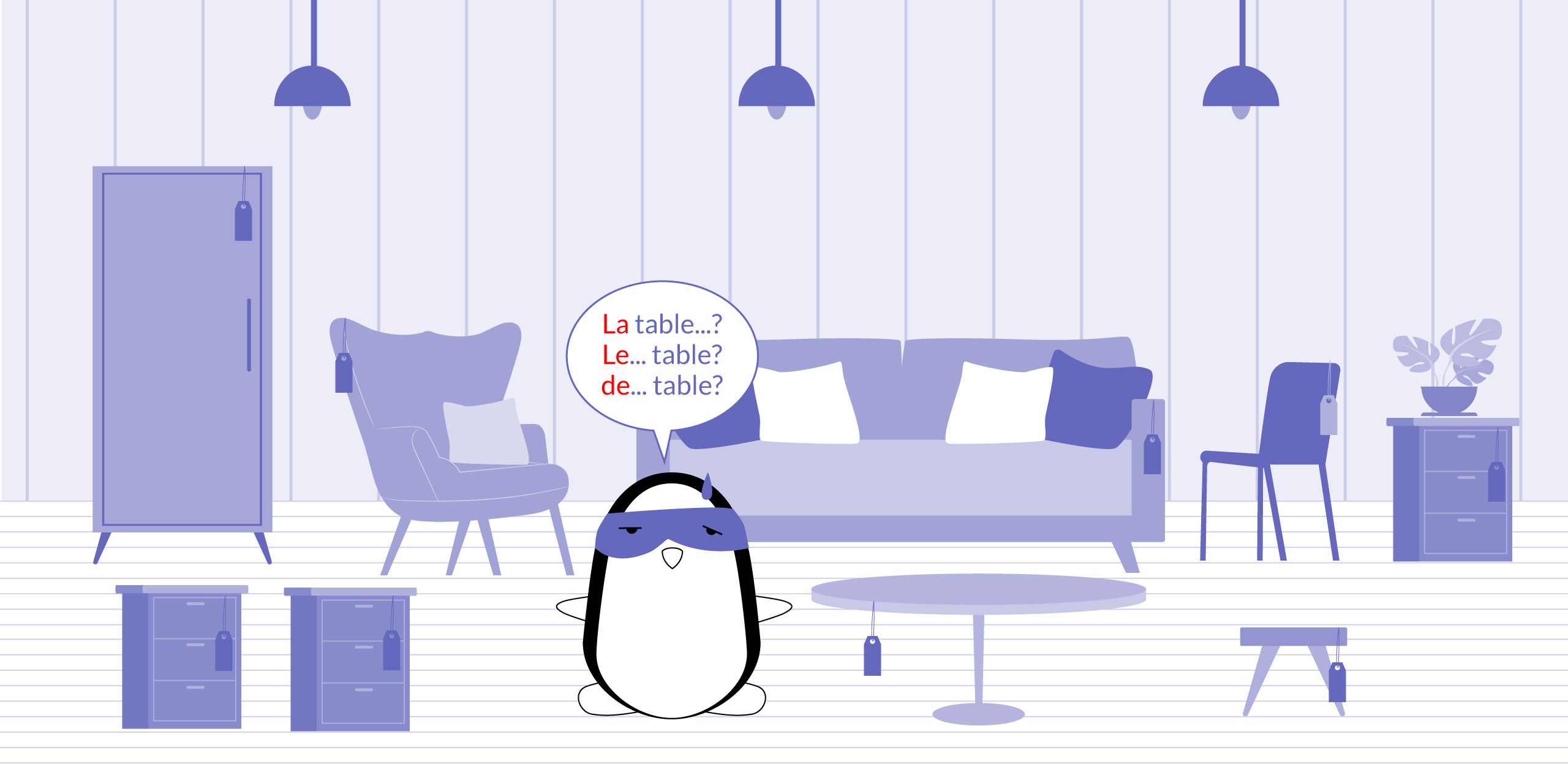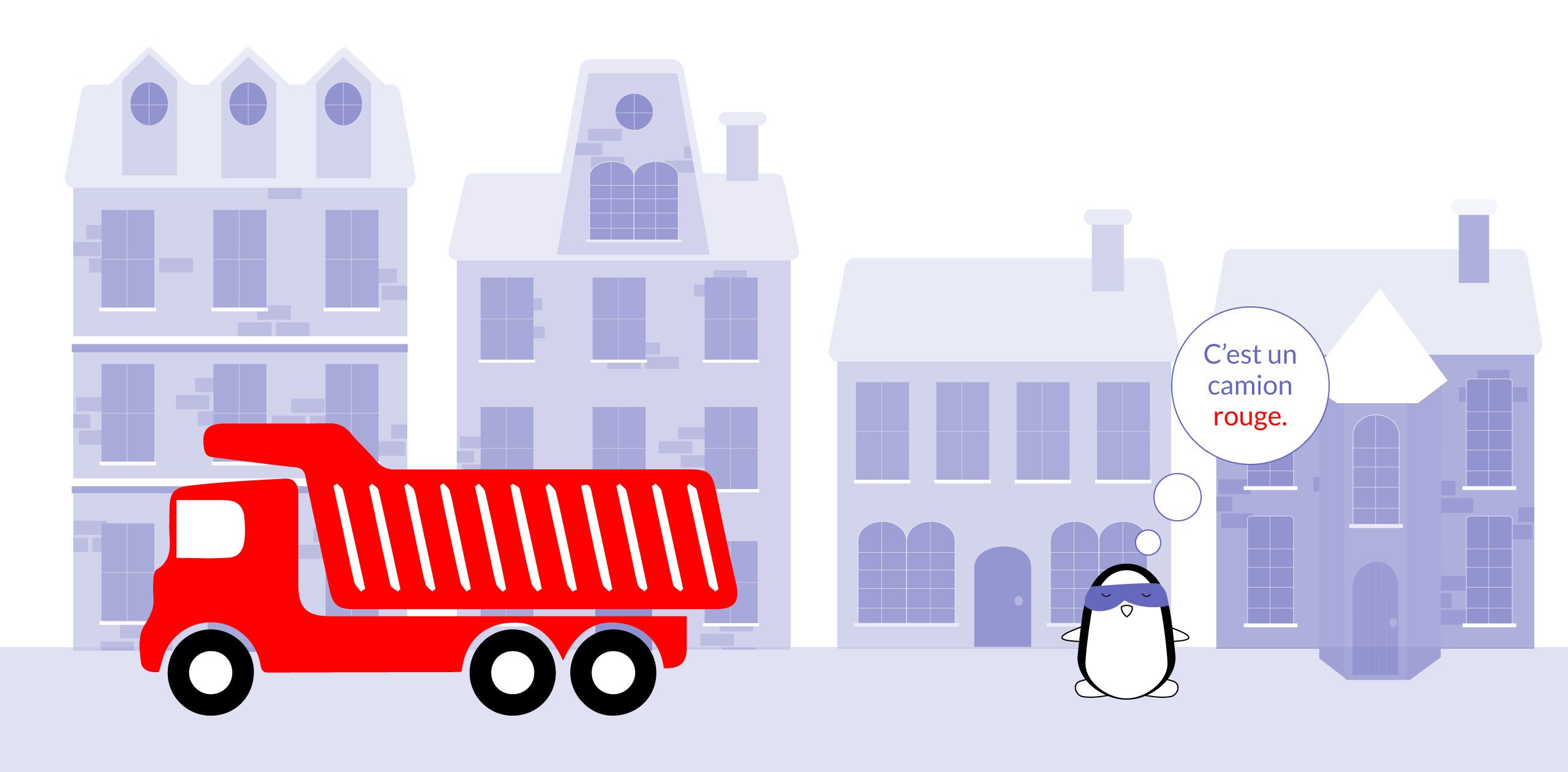
In any language, adjectives are a key part of communication. They help to modify or describe nouns and can add flavor and nuance to our speech. In French, there are many common adjectives that you will come across in your studies (or already have).
But, while the topic of adjectives may seem simple at first, it can be quite challenging in reality. There are several rules you need to learn to use them fluently, such as where to put each adjective, which ending to use, and how to create their comparative and superlative forms.
To make your language learning journey a bit more structured, let’s go through the basics of adjective usage in French – and learn the most common descriptive words used in the beginning levels of this language. Read on.
Learn French with Langster
Adjective Endings
When learning about adjectives in French, it’s important to understand the different types that exist. In general, adjectives can be classified into two groups: those that are invariable (or invariant adjectives), and those that have different forms (or variable adjectives).
Epithetic adjectives usually go after the noun they modify. For example, in the sentence “Des cheveux étonnants”, the adjective “étonnants” (amazing) is epithetic. In contrast, attributive adjectives also modify the noun, but appear together with a stative verb, such as in the sentence Il était silencieux. – “He was silent.”
Unlike in English, French adjectives have masculine and feminine forms, which is why they, just like some other French parts of speech, have to agree in number and gender with the noun they modify.
Remember About Agreement
When it comes to adjective agreement in French, there are two things you need to take into account:
Gender: whether the noun is masculine or feminine;
For example, take a look at this sentence: Une fille est fatiguée. (A girl is tired.) Here, we have a singular feminine subject (“une fille”), so the adjective “tired” has to agree with it and takes on the ending -e. In the masculine singular form, we would just use the adjective “fatigué.”
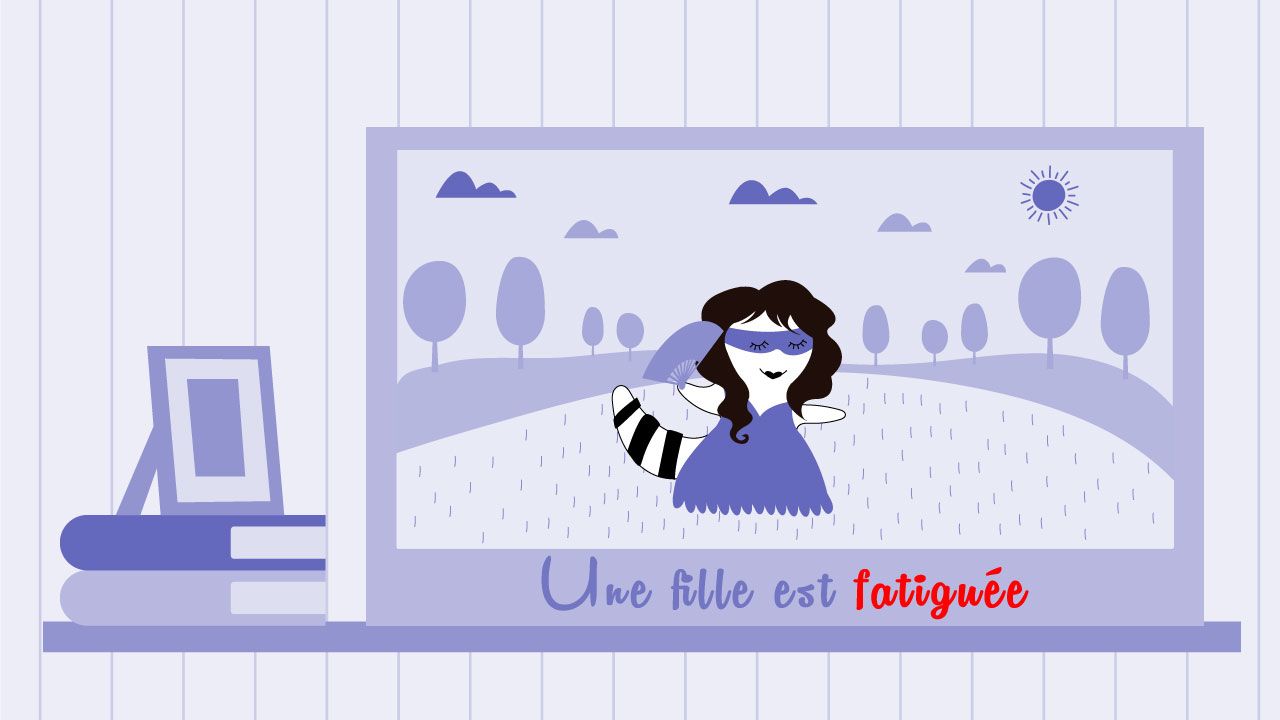
Remember that the agreement is necessary even in first-person sentences, such as je suis fatigué. If you are a man or identify as a male, then the adjective ending will be masculine singular -é. And, if you’re a woman or identify as a female, you need to add a second -e to create the feminine form.
Regular vs. Irregular Adjectives
Another point you need to consider when using adjectives in French is whether they are regular or irregular. In general, most French adjectives are regular, which means they follow a specific pattern when it comes to spelling and agreement. For example, the adjective petit (small) becomes petite in the feminine singular form.
However, there are also some irregular French adjectives that change the ending in different ways, according to the rules you might have already encountered when learning the noun endings. For example, there is nouveau – nouvelle (new), vieux – vieille (old), and beau – belle (beautiful), among others.
While there are quite a few irregular forms, and learning them all may seem daunting, remember that the ending change works similarly for nouns and in adjectives. So, if you learn the most common irregular ending changes in nouns, it will be much easier to do so with adjectives. Here are some main rules:
- Adjectives that end in -e don’t change their ending in the feminine form.
French
English
un camion rouge – une voiture rouge
a red truck – a red house
- Adjectives ending in -eux end in -euse in the feminine form.
French
English
un homme heureux – une femme heureuse
a happy man – a happy woman
- Adjectives ending in -on, -en, and -el double the final consonant in the feminine form.
French
English
un monde cruel – une vie cruelle
a cruel world – a cruel life
- Adjectives ending in -er change their ending to -ère in the feminine form.
French
English
le premier étage – la première porte
the first floor – the first door
- Adjectives changing in -f end in -ive in the feminine form.
French
English
un garçon sportif – une fille sportive
an athletic boy – an athletic girl
When learning irregular endings, try to focus on the most common French adjectives first, such as the three we mentioned before. Then, gradually broaden your vocabulary. With time and practice, it will become second nature to select the right spelling and ending.
Plural Adjectives
Plural French adjectives abide by similar rules. Most often, to create a plural form, you need to take the singular version and add an -s to it. For example, when we have a masculine plural subject “les garçons,” the sentence mentioned earlier would look like that: Les garçons sont fatigués. (The boys are tired.)
The same goes for a feminine plural subject – in that case, we would use -s endings as well as an additional e: Les filles sont fatiguées. (The girls are tired.)
But, there are three exceptions when it comes to the plural adjectives, which is also partially similar to the ending change in plural nouns. These are:
- Masculine adjectives ending in -s or -x don’t change in the plural form:
French
English
un garçon français – des garçons français
a French boy – French boys
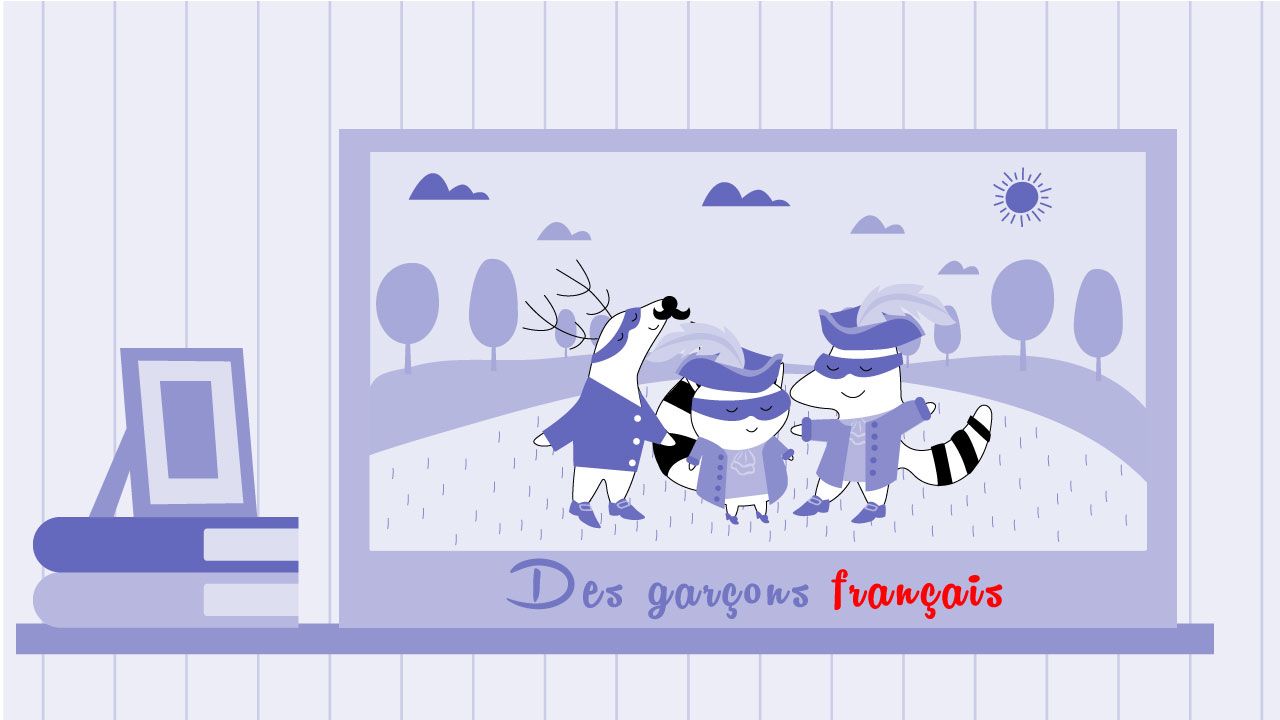
- Masculine adjectives ending -al in the singular changes to -aux in the plural.
French
English
un homme génial – des hommes géniaux
a great man – great men
- Masculine adjectives ending in -eau in the singular form end in -x in the plural form.
French
English
un beau paysage – de beaux paysages
a beautiful landscape – beautiful landscapes
Adjective Placement
When it comes to the French adjective placement in a sentence, that depends on the type of adjectives. L’adjectives attributs always come after the verb they are used with. For example:
French
English
Elle est belle.
She is beautiful.
Il est grand.
He is tall.
On the other hand, l’adjectives épithètes usually come after the noun they’re modifying.
French
English
Un livre intéressant.
An interesting book.
But, there are several exceptions where French adjectives go before the noun. Some common cases include:
- Short, often-used adjectives such as beau, bon, bref, grand, gros, faux, haut, jeune, etc. – you have to memorize them.
French
English
C'est un bon restaurant.
This is a good restaurant.
- If there are two unconnected nouns in the sentence, they frame the noun:
French
English
J'ai acheté une belle robe verte.
I bought a beautiful green dress.
Note: if the nouns are connected by a conjunction such as mais, donc, or, etc., they go after the noun.
French
English
J'ai acheté une robe courte mais magnifique.
I bought a short but beautiful dress.
Some adjectives can also be placed both before and after the noun, but their position changes the meaning, such as:
French
English
Mon cher ami.
My dear friend.
Un livre cher.
An expensive book.
Comparative and Superlative Forms of Adjectives
When it comes to comparing two things in French, you need to use a bit of grammar. Just like in English, where you would say “My car is faster than yours” instead of “My car is more fast than yours” (which doesn’t make sense), there are specific rules to follow in French as well.
The first thing you need to know about comparisons is that they involve the following three degrees:
Le comparatif de supériorité – The comparative of superiority. It expresses a higher degree when comparing two objects. For example: She is smarter than me.
Le comparatif d’infériorité – The comparative of inferiority. It expresses a lower degree when comparing two objects. For example: He’s less smart than his sister.
Le comparatif d’égalité – The comparative of equality. It expresses equal degrees when comparing two objects. For example: He is as smart as his brother.
To build a comparative sentence in French, you need to use the following construction:
- Noun/pronoun + verb + plus/moins/aussi + adjective + que + noun/pronoun
For example:
French
English
Alex est plus grand que Jean.
Alex is taller than Jean.
Jean est moins grand qu’Alex.
Jean is less tall than Alex.
Sophie est aussi grande que Laura.
Sophie is as tall as Laura.
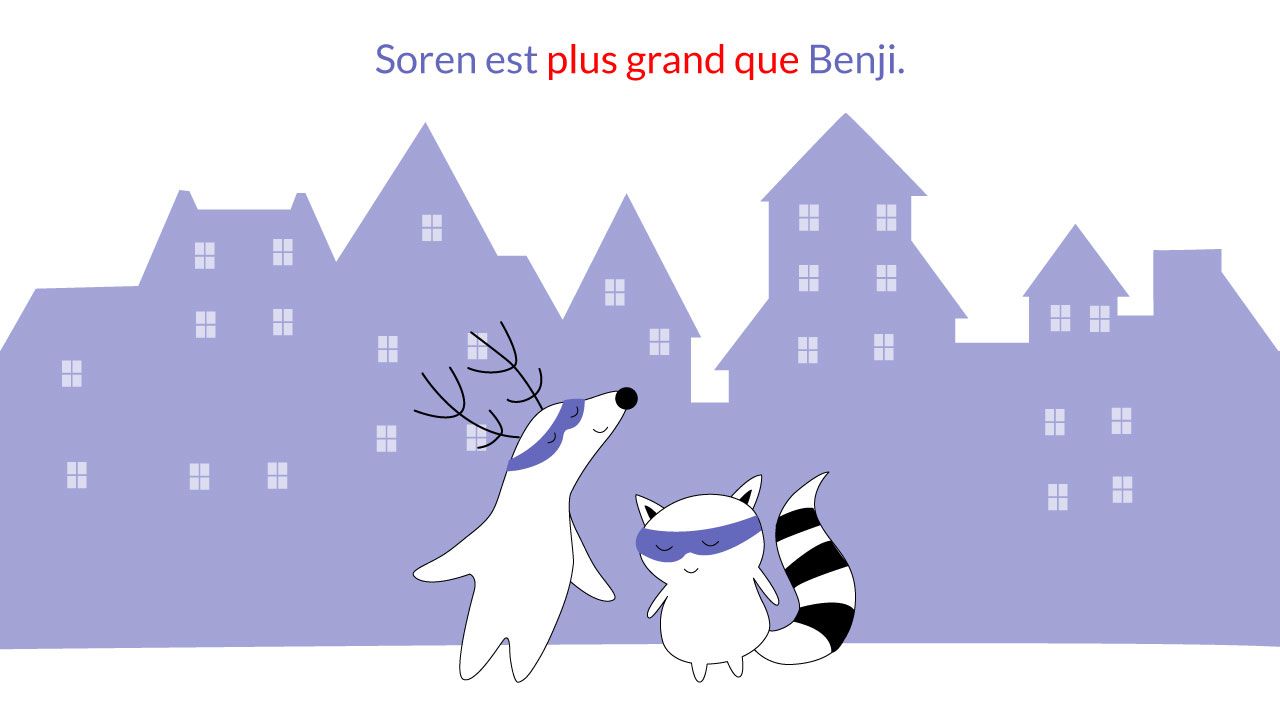
In order to make a superlative form of an adjective, you need to use the following construction:
- Noun/pronoun + verb + le/la/les + plus/moins + adjective
For example:
French
English
Fiona est la plus grande de toute sa famille.
Fiona is the tallest in her family.
Fabrice est le moins rapide.
Fabrice is the slowest.
When creating comparative and superlative forms, don’t forget about the French adjective agreement as well. To learn more about comparative and superlative adjectives in French, check out this grammar point on our website.
Common Adjectives in the French Language
Now that you know all there is to know about French adjectives, it’s time to learn some common ones. After all, what’s the point of learning grammar if you don’t get to use it in real life? Here is a list of 25 common French descriptive words that you can use in your daily conversations:
French
English
grand
big, large
petit
small
mignon
cute
intelligent
smart
stupide
stupid
drôle
funny
sérieux
serious
génial
great, awesome
terrible
terrible, awful
fascinant
fascinating
horrible
horrible
incroyable
incredible, unbelievable
agréable
nice, pleasant
affreux
hideous, awful
aimable
friendly, amiable
charmant
charming
doux
soft, gentle
dur
hard
facile
easy
difficile
difficult
heureux
happy
triste
sad
content
pleased, satisfied
ennuyeux
boring
fatigué
tired
The Amazing World of French Adjectives
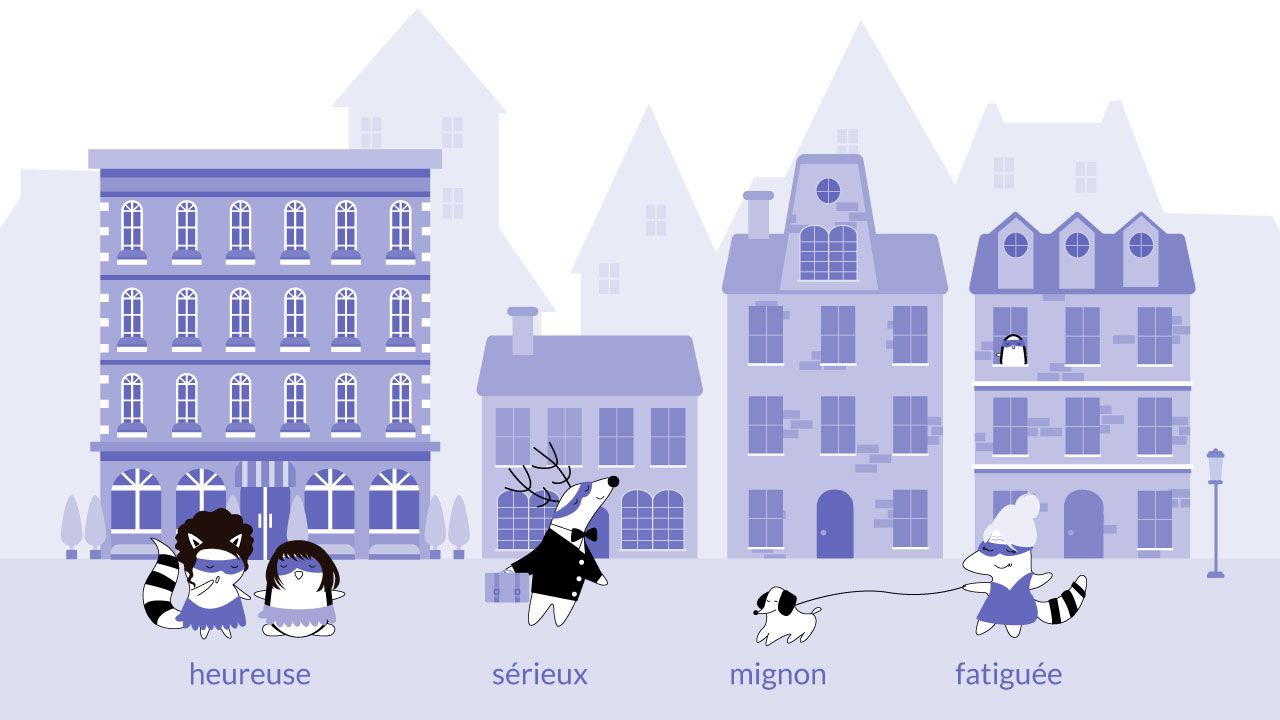
Adjectives are a necessary and important part of the French language, as they help to modify nouns and make our speech more interesting. By learning some common adjectives, you will be able to express yourself better in your everyday conversations.
With this grammar point under your belt, you’ll be able to ace your next French test and ensure that every conversation with a native speaker sounds as natural as possible. But, of course, practice is the key – so, what are you waiting for? Start studying today!







